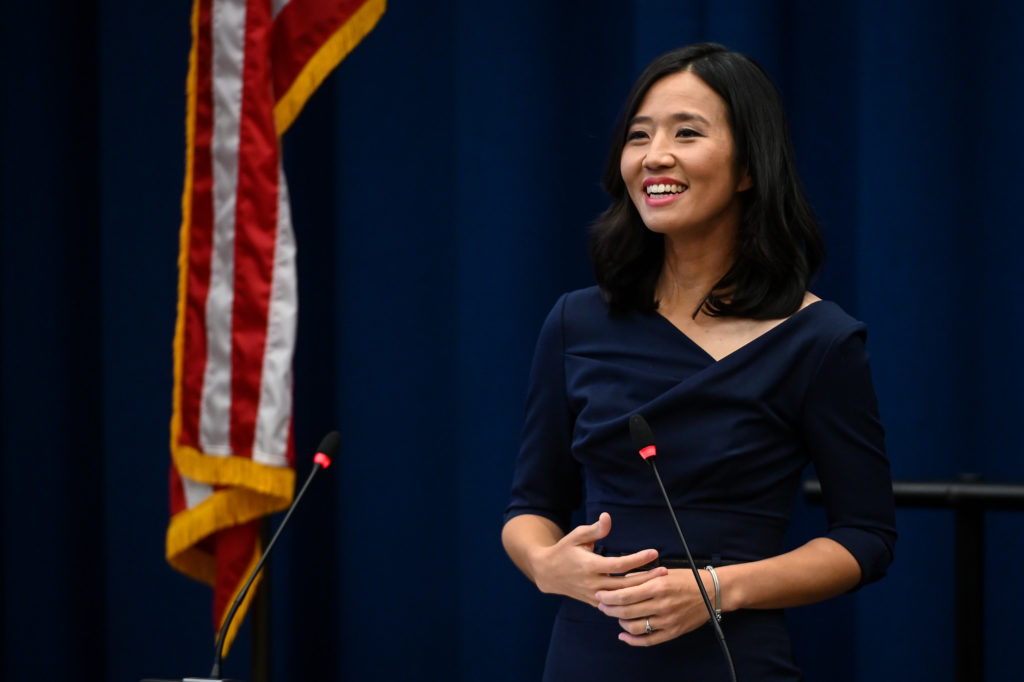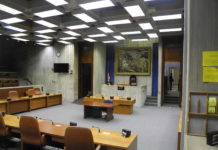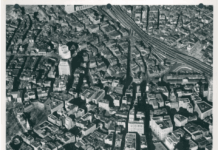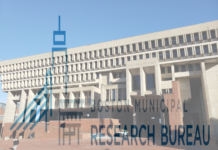by MIKE FREEDBERG
SPECIAL TO EASTBOSTON.COM
Recently, Mayor Wu released her first city budget, a $3.99 billion labyrinth of revenue streams and expenditure rivulets. As city government is, despite all the moralistic hoop-la, ultimately about money choices, a look at Wu’s budget allows us to know pretty candidly what she wants.
Will we want it as well? That is the question, not that we have much say in the matter.
We already spent such say as we had in City money when we elected Wu mayor rather than Annissa Essaibi George. For now, our tax dollars are in her hands– and in the City Council’s: for the Council now has the power to make budget amendments (it never had that power before) and we might not love what they’ll spend them on.
I’ve written about the City’s Schools Budget already for this publication. So, I won’t rehash what was critiqued there. Schools represent almost 30 percent of Wu’s $3.99 billion. What I’m now going about is to discuss the other $2.74 billion, which Wu and the Council allocate to Public Safety, Mayor’s Office of Housing, Public Works, Public Health, the Office of Economic Opportunity and Inclusion, the Mayor’s Office staff, and Personnel.
If all this reads pretty normal, well, it is pretty normal. Yes, there’s some trimming here and there, with $18 million taken away from the police’s overtime allocation – hardly a dramatic shift — and re-allocated to Public Health, a city responsibility which we have all seen, frustratingly, in action as it tries to resolve the addiction on the streets tragedy we call “Methadone Mile.”
You might suppose that “Methadone Mile’ would call for greater police presence. I certainly think so. Thus it’s worthy of mention that the Council, exercising its new amendment powers, voted an additional $ 13.3 million cut in police overtime and $1.2 million from the Fire Department, giving this money instead to “youth job Initiatives,” a pay bump for council staff, and $600,000 to fund a new “Office of Black Male Advancement.”
Yet whatever this last item might portend, and to her credit, Wu has rejected the council’s amendments, noting that the city is legally required to fund police overtime. Wu also insisted that she will prioritize a new class of 60 Police cadets (the City actually needs 10 times that number), no matter the council’s views.
Good for Mayor Wu.

I am quite sure that Wu is glad to advocate on behalf of the police as voters’ serious concerns about public safety increase, given recent rampages downtown by out-of-control kids and by multiple cases of violence in the city’s schools.
Yet despite all of her fiscal conservatism and priority traditionalism, Wu calls her budget a “transformative agenda.” Where in this budget normality do we find transformation?
I find such transformation as Wu talks of not in the dry pages of account figures but in the language she uses, in her speeches, to describe her money bets. Her housing plans, for example, commit major funds to alleviating the terribly high rents and selling prices that have made Boston almost out of reach for those who earn less than double theCity’s median income. If her budget could solve this riddle, it indeed would be truly transformative. So, does it? Not really, although her rent subsidies, much of it using $40 million of federal American Rescue Plan Act (ARPA) funds (out of the $550 million Boston has received since early 2021), will help.
Nowhere in Wu’s budget is there any discussion of the biggest housing riddle: that the more new development that rents for $32,200 to $4,500 a month, the more these rents jack up the rents that landlords can charge for existing housing. The higher all Boston rents go, the more impossible it becomes for city employees, tied, like medieval serfs, to living in Boston by the City’s residency requirement, to comply. How are City Employees earning less than the City median — $ 57,000 – which means most – going to keep their jobs? What about new hires ? How will they manage ?
Nor are we who aren’t city employees any better off. If we don’t earn more than $75,000 – because most landlords want a tenant to earn at least three times the rent – going to stay here close to our jobs and thus not having to do a one or two-hour commute? Wu’s budget obviously cannot tackle such a macro-economic riddle, but it could, if it really wanted to be transformative, devote a lot more than the coming fiscal year’s $41.9 million to the Mayor’s Office of Housing, which includes linkage fees and rent subsidies.
Nor does the budget have even one word to say about the “city residency-city employee wage” paradox.
(Possibly the recent peaking of the real estate market, because of much higher interest rates, may do to rents what all the governmental paper shuffling cannot do. There’s some evidence that rents are dropping. We’ll see if this holds true for longer than a season. In any case, it’s not happening by way of Wu’s budget.)
Back to “transformation” : the approximately $5 million allocation to Wu’s Office of Economic Opportunity and Inclusion isn’t very “transformative” either. If Wu’s intention is to raise the level of participation by people of color in Boston’s admittedly booming economy, somehow $5 million, much of it spent on staff salaries, doesn’t seem to pack big punch.
I don’t mean to dismiss Wu’s budget as a nothing-burger. It is a very cautious, very stable budget, and it is no accident that the very first paragraph of her budget summary touts Boston’s AAA credit rating. Her budget readout is aimed at two groups above all: the city’s taxpayers, and the billion dollar investors who keep the business skyline skyscraping and residential rents as sky high as the economy will allow.
You can read more about the budget here: https://www.bmrb.org/wp-content/uploads/2022/06/SR22-1FY23budget.pdf.
— Mike Freedberg
Mike Freedberg is editor and publisher of the blog, Here and Sphere. He is also a political consultant. He regularly contributes original, participatory content to EastBoston.com.














